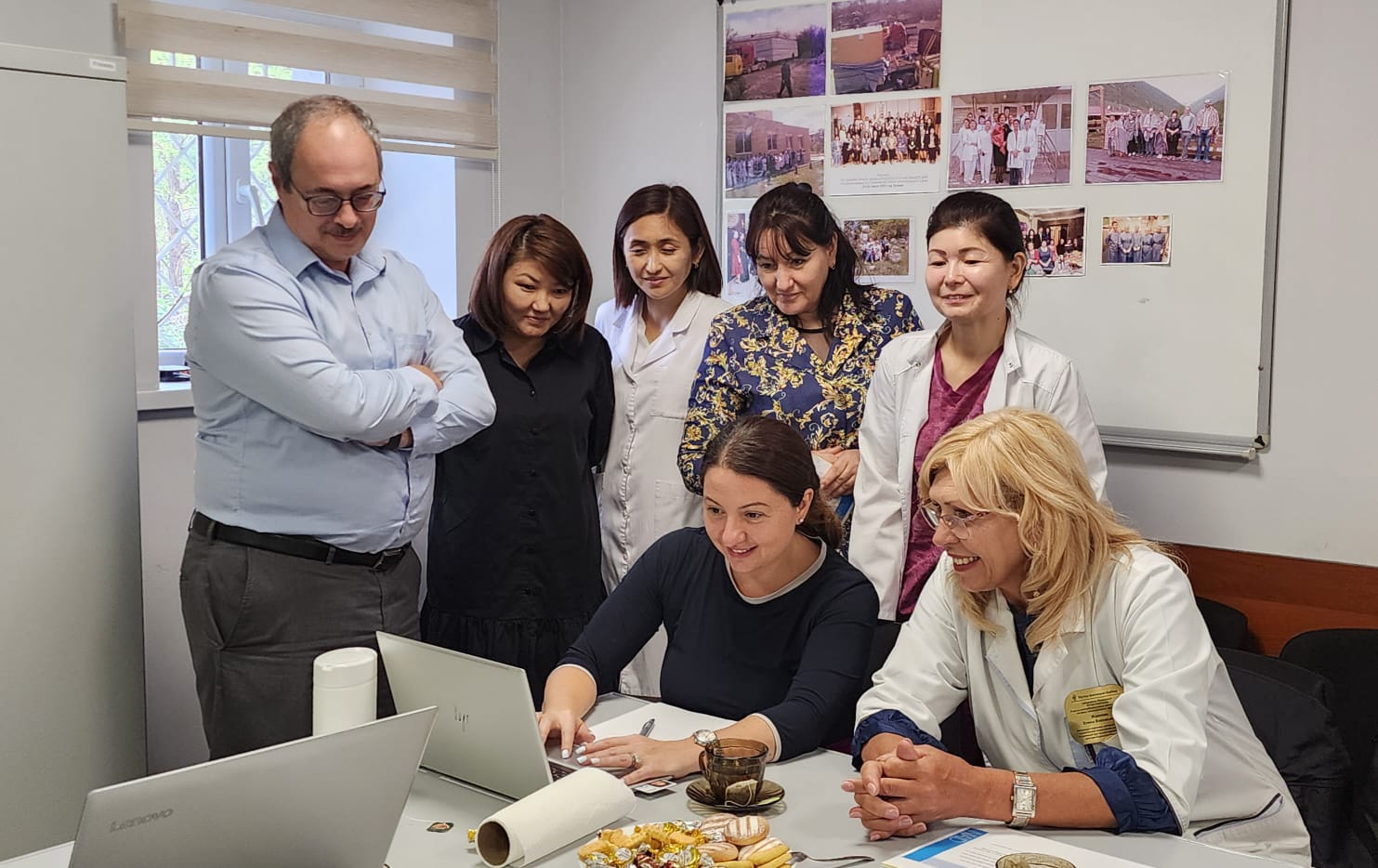04.10.2023
U.S. National Institutes of Health’s (NIH) National Institute of Allergy and Infectious Diseases (NIAID) visited ISTC partners in Kazakhstan and Kyrgyzstan

During the recent pandemic, spending on TB research and services was reappointed for COVID studies. New TB studies show an emergence of novel drug-resistant forms, which caused 10.6 million cases worldwide in 2021. Due to the infection rates in Kazakhstan and Kyrgyzstan, the World Health Organization has designated these countries as "high incidence.” The ISTC is now in its fifth (Kyrgyzstan) and sixth (Kazakhstan) years of a project to collect relevant information on patients suffering from drug-resistant tuberculosis. An interdisciplinary team from the U.S. National Institutes of Health’s (NIH) National Institute of Allergy and Infectious Diseases (NIAID) traveled to Almaty and Bishkek earlier this month for site visits related to work for the TB Portals Program.
A multi-national partnership on tuberculosis data exchange and analysis, TB Portals enables experts from Central Asia, the South Caucasus, Eastern Europe, Asia, Latin America, and sub-Saharan Africa to contribute high-quality data, including pathogen genomic, radiological imaging, and clinical data.
In Almaty and Bishkek, the NIH/NIAID team met with the ISTC partners at the National Science Center of Phthisiopulmonology under the Ministry of Healthcare of the Republic of Kazakhstan and the National Tuberculosis Center under the Ministry of Health of the Kyrgyz Republic to discuss areas of current and future collaboration.
In July, the NIH/NIAID experts visited Georgia to conduct similar site visits. As an essential collaborator of the TB Portals Program, ISTC is eager to continue supporting the global efforts of clinical and research partners.

